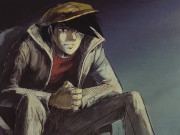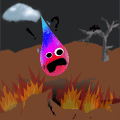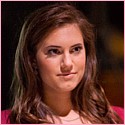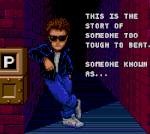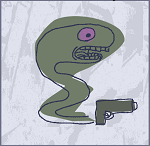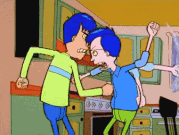|
Let's talk short fiction. Short stories and short story collections are universally less popular than novels, but many authors' best work is in short form. The limitations inherent in the short form force authors to cut out any weak material, and the best short stories pack the impact of a novel without any of the bloat. Great short fiction takes advantage of its form to create tension, ambiguity, and emotional resonance. Short fiction can be less accessible than novels. Short stories often ask more of their readers. They can be unsatisfying, abrupt, and frustrating. Like poetry, good short fiction rewards multiple readings. This is why I prefer collections of short stories by a single author to collections of multiple authors. Like a music album, collections of stories by one author will share common themes and ideas that change the story's context and offers deeper meanings. However, short story collections like Best American Fiction can be great introductions to the world of short fiction. There are a huge number of great short fiction writers, modern and classic. I just want to highlight a few that I've enjoyed. Ernest Hemingway - Hemingway more-or-less defined minimalist short fiction. I've never enjoyed Hemingway's novels, but his short fiction is amazing. The best starting place is the collection The Snows of Kilimanjaro, especially the classic Hills Like White Elephants, which you've read if you ever took a freshman fiction class. Anthony Doerr - A Western short story writer whose works often touch on medical and natural themes. The Shell Collector is his best-known collection, but Memory Wall might be his strongest. Doerr's prose is dense and beautiful, and at its best pushes the boundaries of what short fiction can do, in terms of the breadth and span of his stories. Edith Pearlman - An unsung treasure, Pearlman deserves to be much more famous than she is. Her stories are honest and unflinching, dealing frankly with subject matter others wouldn't touch, but without falling into the maudlin or melodramatic. Start with her collection Binocular Vision. The collection's best-known story is Hanging Fire, but the collection is huge and has something to offer anyone. Daniel Orozco - Orozco only has only published one collection so far, but is already getting widespread critical attention. Orientation is one of the best short story collections I've ever read, and you can expect to see his work taught in classes for years to come. The title story is publicly available here and should not be missed. Other highlights include Somoza's Dream, Officers Weep, and Shakers. Alice Munro - Highlighting Munro is probably unnecessary. She regularly tops lists of the best contemporary writers, and her collection of interconnected stories, The View From Castle Rock, won the 2013 Nobel Prize for Literature. She deserves every bit of it. It's not the most accessible work, but it's worth the effort. Margaret Atwood - Atwood is mostly known for her novels and, recently, her forays into genre fiction, but she's also a talented short story writer. Bluebeard's Egg has some great stories, but her microfiction collection Good Bones is incredible from start to finish. Atwood does more in a three-page story than many authors can with a novel. What are your favorite short stories or short story collections? What do you see as the strengths and weaknesses of the format? This thread isn't just for discussing literary fiction. Many genre writers (especially the classics - Bradbury, Clarke, and Asimov) are at their best in short form.
|
|
|
|

|
| # ? Apr 25, 2024 12:11 |
|
I love short stories! Vonnegut is unsurprisingly excellent at it (Welcome to the Monkey House is the only collection of his that I've read, but he has other collections, like Bagombo Snuff Box). He manages to avoid using the speculative part of speculative fiction as a crutch and the stories in Monkey House are all tied together under Vonnegut's usual themes (which makes it better suited towards reading in chunks rather than powering through the whole thing). I also recently (in the past year) read Bear Down, Bear North which won the Flannery O'Connor award. It reminds me of a more feminine Hemingway, if that makes sense (although I usually hear comparisons to Faulkner which seems off to me). It also has a common thread that runs through it, but rather than tying it to the message, Moustakis uses Alaska as a unifying concept. It's real neat.
|
|
|
|
Declan MacManus posted:I love short stories! Vonnegut is unsurprisingly excellent at it (Welcome to the Monkey House is the only collection of his that I've read, but he has other collections, like Bagombo Snuff Box). He manages to avoid using the speculative part of speculative fiction as a crutch and the stories in Monkey House are all tied together under Vonnegut's usual themes (which makes it better suited towards reading in chunks rather than powering through the whole thing). I read Sucker's Portfolio which is a collection of some previously unpublished Vonnegut short stories and all of them except for one were pretty terrible! I'm not sure what it was about them, I love Vonnegut usually but there wasn't anything very interesting behind the writing. It might be that because it was just a collection of unpublished stories they didn't have a unifying theme so tehy couldn't reinforce one another's message, or it might just be they were unpublished for a reason. In terms of good short stories, you can't go wrong with Borges. If you haven't read Fictions then you should, it's great stories about the nature of storytelling. There's not a weak story in the lot.
|
|
|
|
I am a huge fan of genre fiction (sf/f) short stories. Some recommendations in that field: Of the earlier SF authors, I have always been impressed by Asimov's short fiction. His shorter works tend to be a lot better than his longer novels - he tends to pace better and have more interesting ideas introduced used in a short time period. There are so many of Asimov's short stories that no one collection has anywhere near a comprehensive set of the best of his work, so I recommend reading whatever you can find. I strongly suggest not judging his fiction by Nightfall, his most famous story - whether or not you like the story (I personally did not like it very much), it is very atypically written for him. I was never as impressed with Heinlein or Clarke's short story efforts - I feel their styles were better adapted to long-form novels. Neil Gaiman's novels have always eclipsed his short stories, which I feel is a shame - his short story efforts as collected in Smoke and Mirrors and Fragile Things are better than most of his other works, even. Really strongly written, and tend to be full of strangeness and wonder that in the short story format works better than in his longer works. Stanislaw Lem wrote a variety of short pieces of science-fiction that were light enough on the 'science' part they might more accurately be classified as fantasy. They tend to be absurd comic stuff or be fables of some sort or both, and they are almost without exception really great. Specific examples of collections include Cyberiad, Mortal Engines, his Ijon Tichy stuff, etc. They're all worth reading. John Varley wrote a lot of really interesting sci-fi short stories that are largely unknown now, in various collections - it looks like The John Varley Reader hits most of the highlights based on it's wikipedia page. As far as collections by multiple authors go, I suggest Dangerous Visions (the first one, the later sequel wasn't as good) and the Science Fiction Hall of Fame vol. I - there's a lot of good stuff in the first volume. Later volumes weren't as good but weren't terrible. A couple individual stories not falling into any of the above. - Dan Simmons' The River Styx Runs Upstream. Beautiful and memorable writing. I'm not a huge fan of the other short stories he's written (those in Prayers to Broken Stones, anyways). - Alfred Bester's 5,271,009 is an interesting deconstruction of a lot of popular science fiction stories of the time, and a few other things. Its Aquila character is very memorably written. -Ellison's A Boy and His Dog and I Have No Mouth But I Must Scream are really amazing and memorable pieces of sci-fi horror.
|
|
|
|
CestMoi posted:I read Sucker's Portfolio which is a collection of some previously unpublished Vonnegut short stories and all of them except for one were pretty terrible! I'm not sure what it was about them, I love Vonnegut usually but there wasn't anything very interesting behind the writing. It might be that because it was just a collection of unpublished stories they didn't have a unifying theme so tehy couldn't reinforce one another's message, or it might just be they were unpublished for a reason. I've never read Sucker's Portfolio, and now it looks like I never will (unless I borrow it from someone). Borges is excellent, and since we're talking about SA authors, I'll throw Marquez into the ring as another broadly acclaimed writer who happened to write excellent short stories. I'd recommend Strange Pilgrims and Leaf Storm (which has most of the Marquez short stories that most people are familiar with, like "The Handsomest Drowned Man in the World" and "A Very Old Man With Enormous Wings"). He also wrote quite a few novellas (although I don't know if that still counts as short fiction).
|
|
|
|
Declan MacManus posted:Borges is excellent, and since we're talking about SA authors, I'll throw Marquez into the ring as another broadly acclaimed writer who happened to write excellent short stories. I'd recommend Strange Pilgrims and Leaf Storm (which has most of the Marquez short stories that most people are familiar with, like "The Handsomest Drowned Man in the World" and "A Very Old Man With Enormous Wings"). He also wrote quite a few novellas (although I don't know if that still counts as short fiction). Also on the subject of genre short fiction, Cordwainer Smith is easily the best sci-fi author ever to write, and almost exclusively wrote short fiction. If you haven't yet, find his work immediately. "The Day The People Fell" is an easy starting place.
|
|
|
|
I'm a little surprised nobody's mentioned Raymond Carver yet. I'm a fan of his books, especially Where I'm Calling From, which collects some of his earlier stories with a handful of then-new ones. Some of the stories there - I'm thinking of A Small, Good Thing in particular - hit me right between the eyes: the way the baker talks to the husband and wife at the end of that story felt just blew me away. But there's a bunch of stories in that collection I enjoyed: Neighbors, Are These Actual Miles?, Cathedral, The Third Thing that Killed My Father Off. I'm sure people here can speak better than I about his writing style, too: it's simple, pared down to the basics. That largely came through heavy edits by his editor Gordon Lish (The New Yorker ran a story of Carver's a while back with Lish's editing marks showing), but even in the more unedited versions collected in Where I'm Calling From, Carver's prose is pretty condensed. How do you all feel about John Cheever? I picked up an anthology of his stories a few months back, but I haven't gotten to it yet.
|
|
|
|
I know this thread is young yet but still the failure of anyone to mention Anton Chekhov is shameful. In my opinion his short stories are still some of the very best. The Duel and The Kiss stand out in my mind but everything I've read by him has been excellent. Also I definitely recommend Richard Brautigan. Vaguely associated with the beats but very much his own thing. He writes great humorous and sharp stories about 60's life, Americana, travel, books, and so on. He's particularly good with "short shorts" i.e. stories that are about a paragraph long - some of the best of these can be found in the collection "Revenge of the Lawn"
|
|
|
|
barkingclam posted:I'm a little surprised nobody's mentioned Raymond Carver yet. I'm a fan of his books, especially Where I'm Calling From, which collects some of his earlier stories with a handful of then-new ones. Some of the stories there - I'm thinking of A Small, Good Thing in particular - hit me right between the eyes: the way the baker talks to the husband and wife at the end of that story felt just blew me away. But there's a bunch of stories in that collection I enjoyed: Neighbors, Are These Actual Miles?, Cathedral, The Third Thing that Killed My Father Off. I like Carver more with the Lish edits. I picked up Beginners when it first came out and it felt so bloated compared to What We Talk About When We Talk About Love. What We Talk About (the original version) and Cathedral are probably my favorite works of his.
|
|
|
|
Surprised nobody has mentioned George Saunders yet. I kept hearing all the rave about Tenth of December last year around this time and bought it, read it in two days and read all of his other collections within two weeks. If anyone is a fan of Vonnegut, check Saunders out immediately. Hell, even if you aren't a fan of Vonnegut. The title story from Tenth of December almost (okay, maybe it did) bring some tears to my eye: http://www.newyorker.com/fiction/features/2011/10/31/111031fi_fiction_saunders?currentPage=all And this two-ish page story packed so much in a small space. Punched me in the gut actually: http://www.unm.edu/~gmartin/535/Sticks.htm
|
|
|
|
For the SF&F crowd, there are sceral good sources of short fiction in audio that are free. Drabblecast is my favorite. They usually have good stories with good narration. Norm Sherman is consistantly a funny host and decent reader. Escapepod is slightly worse, but still good. Also occasionally hosted by Norm Sherman. But the quality of readers is more variable. Podcastle is the fantasy sister of Escapepod. Also decent, but with the same problems as above. And one thing that annoys me is that they are too worried about being politically correct...like this fantasy thing is a socially progressive art form or something. I just want friggin' swords and lasers. All of them are free. I highly recommend checking out the episode where they read Bloodchild by Octavia Butler.
|
|
|
|
I got a collection of short stories by Lydia Davis today because I heard they were good and I turned to a random page and saw: Suddenly Afraid because she couldn't write the name of what she was: a wa wam owm owamn womn and I think these will be good short stories
|
|
|
|
Earwicker posted:I know this thread is young yet but still the failure of anyone to mention Anton Chekhov is shameful. In my opinion his short stories are still some of the very best. The Duel and The Kiss stand out in my mind but everything I've read by him has been excellent. Richard Brautigan's shorts are amazing. This might be one of his most famous ones: http://brautigan.tumblr.com/post/85775192/i-was-trying-to-describe-you-to-someone-by-richard I'm also a huge fan of Tobias Wolff. He really got famous thanks to his autobiography "This Boy's Life" and following movie, but it's his short stories where he really excels. Here's a pdf with three of them: http://rwwsoundings.com/wp-content/uploads/2013/06/Three-Stories-by-Tobias-Wolff.pdf (Also a minor quibble, OP, Nobel Prize is awarded for a body of work not any particular book.)
|
|
|
|
Declan MacManus posted:I like Carver more with the Lish edits. I picked up Beginners when it first came out and it felt so bloated compared to What We Talk About When We Talk About Love. What We Talk About (the original version) and Cathedral are probably my favorite works of his. I can see that, I probably enjoy the stuff in Beginners more because it's what I happened to read first. Still, with some of the stories, Lish's editing changed the whole feeling the story. Take A Small, Good Thing: if I remember right, Lish cut Carver's ending scene with the baker and the story ends on a much darker note.
|
|
|
|
Great Gray Shrike posted:John Varley wrote a lot of really interesting sci-fi short stories that are largely unknown now, in various collections - it looks like The John Varley Reader hits most of the highlights based on it's wikipedia page. I've read five stories by John Varley and all five of them featured pedophilia as a wonderful and magical experience for the child. I've sworn off reading anything by him as a result. For anyone curious why I kept going through five stories, I was going through all of the Hugo and Nebula winning and three of his stories won. But just so I'm not a complete downer, I have to mention Ted Chiang who is easily the best short fiction writer in sf/fantasy today. He only writes short stories and publishes one about every two years. I think it's because he's obsessive in getting the language and structure down perfectly. As a few recommendations, his best known work is "Hell is the Absence of God" which is about dealing with loss in a world where heaven and hell are manifestly visible and "The Merchant and the Alchemist's Gate" where he takes the nested story structure of the Arabian Nights stories and applies it to time travel.
|
|
|
|
I'm really happy you made this thread! I've been wanting to make a short story thread, but I'm not well read enough to start it off. It's interesting you like collections from single authors rather than anthologies...I'll have to pick up a few. Thank you for the suggestions! The first short story anthology I picked up was the Ecco Anthology of Contemporary American Short Fiction, edited by Joyce Carol Oates. Admittedly I haven't read Joyce Carol Oates, but from what I hear she writes a lot of gothic horror. There is a lot of gothic horror in the anthology (some truly "holy hell what the gently caress" stories, which I surprisingly love) but also a lot of heartwarming stories. The first story still leaves me After reading Leslie and Sam by Douglas Unger from the anthology, I picked up his Looking for War collection. All good stories! I wish he wrote more though. I can't remember where I heard it, but someone described these stories as "working class fiction". I'm not really sure what that means but I'm interested to see if people could provide some incite if they know.
|
|
|
|
rangersilme posted:I can't remember where I heard it, but someone described these stories as "working class fiction". I'm not really sure what that means but I'm interested to see if people could provide some incite if they know. Pretty sure that term generally implies "slice of life" stories about people of the working classes, generally stories written with an emphasis on realism and focusing deeply on the dramas of everyday life within that specific context, and sometimes with a theme of class consciousness.
|
|
|
|
Earwicker posted:Pretty sure that term generally implies "slice of life" stories about people of the working classes, generally stories written with an emphasis on realism and focusing deeply on the dramas of everyday life within that specific context, and sometimes with a theme of class consciousness. Heh, yeah that makes sense. Thanks. Not sure why I was confused over the term. I guess I'm drawn to those sorts of stories so I was looking for a good way of defining it.
|
|
|
|
rangersilme posted:Heh, yeah that makes sense. Thanks. Not sure why I was confused over the term. I guess I'm drawn to those sorts of stories so I was looking for a good way of defining it. It's not a short story, but go read Emile Zola's Germinal if you haven't. Really a book everyone should read imo.
|
|
|
|
Earwicker posted:It's not a short story, but go read Emile Zola's Germinal if you haven't. Ordered and thanks!
|
|
|
|
The King.
|
|
|
|
Tor.com consistently posts awesome short SFF fiction, though it's usually tangentially related to their/other Macmillan imprint's published novels (like mine was). Rachel Swirsky's and A. M. Dellamonica's are always my favorite to read. I also highly recommend trolling the nominee list for Hugo/Nebula short fiction awards, as I think there's a lot less politicking involved in he short fiction lists, and nearly all of them can be read free.
|
|
|
|
Earwicker posted:I know this thread is young yet but still the failure of anyone to mention Anton Chekhov is shameful. In my opinion his short stories are still some of the very best. The Duel and The Kiss stand out in my mind but everything I've read by him has been excellent. Oh I adore Chekhov. "The Lady With The Dog," is one of my favorite short stories ever. I'm also a huge fan of Salinger's short stories. Most people know him exclusively for The Catcher In The Rye, which is cool since that's a great book. It just makes me sad that Nine Stories and Franny And Zooey get overlooked because they're fantastic. "For Esme-- With Love And Squalor" from Nine Stories is particularly heartbreaking. I just fuckin' love Salinger. Also really like Harlan Ellison. He writes with such exuberance. Reminds me of Nabokov a little bit only probably more batshit.
|
|
|
|
If we're talking scifi I really love James Tiptree Jr./Alice Sheldon. The collection 'Her Smoke Rose Up Forever' has a lot of great, creepy stuff like The Screwfly Solution and a lot of her work has a very feminist bent. Which makes it even more bizarre that people didn't believe she could have been a woman when it was discovered that James wasn't their real name. Blood Child by Octavia Butler was a really hosed up story, but in an interesting way. I really need to read more of her short work. I like Frank Herbert's Eye better than Dune which I'm pretty sure is blasphemy. The strongest story imo was [b]Murder Will In[/i]. If you liked James Joyce's short stories in Dubliners you'd probably enjoy Dylan Thomas's Portrait of the Artist as a Young Dog. It's similar in theme but a little more rowdy. I also enjoyed Charles Bukowski's Run With the Hunted which includes poetry and some excerpts from long works in addition to just stories. I don't know if it counts, but Giovanni Boccaccio's The Decameron is 10 sets of 10 (really) short stories arranged by theme with a frame story to bind them together, sort of like The Canterbury Tales. Some of them are really, really funny and they give an interesting insight into how people thought and what they enjoyed in 14th century Italy. On the other end of the spectrum, I really thought Thomas Pynchon's short work (at least, the work represented in Slow Learner) was really weak compared to his novels.
|
|
|
|
KingJackalope posted:On the other end of the spectrum, I really thought Thomas Pynchon's short work (at least, the work represented in Slow Learner) was really weak compared to his novels. Did ya read the intro essay? It's probably the best part of Slow Learner haha, but yeah, in it Pynchon pretty much denounces all of his short fiction as embarrassing juvenilia.
|
|
|
|
Jeep posted:Did ya read the intro essay? It's probably the best part of Slow Learner haha, but yeah, in it Pynchon pretty much denounces all of his short fiction as embarrassing juvenilia. It's been a couple of years, so I don't remember if I did or not. Probably did skip it.
|
|
|
|
KingJackalope posted:It's been a couple of years, so I don't remember if I did or not. Probably did skip it. You should read it it's really good + is basically Pynchon sighing as he reads stories he wrote where he thinks grippe espagnole is a sort of ennui and never bothered to look up the fact it's Spanish flu. I'm reading SLow Learner at the moment and the progression from "English undergrad writing short stories" to something that is noticeably Thomas Pynchon is really prominent.
|
|
|
|
CestMoi posted:You should read it it's really good + is basically Pynchon sighing as he reads stories he wrote where he thinks grippe espagnole is a sort of ennui and never bothered to look up the fact it's Spanish flu. I'm reading SLow Learner at the moment and the progression from "English undergrad writing short stories" to something that is noticeably Thomas Pynchon is really prominent. I definitely have heard the "grippe espagnole" story so I guess I did read it. I forgot about the intro when I made my first post here, I just remembered my sense of general disappointment with the collection. Please forget I said anything.
|
|
|
|
I'm reading The Martian Chronicles by Ray Bradbury which seems to kinda bridge the gap between short fiction and novels. I'm enjoying it thus far. I also bought Bradbury Stories: 100 of His Most Celebrated Tales for $2 a couple weeks ago when it was a Kindle Daily Deal. I'm looking forward to reading some of those if anyone can point me in the direction of navigating those 100.
|
|
|
|
KingJackalope posted:I don't know if it counts, but Giovanni Boccaccio's The Decameron is 10 sets of 10 (really) short stories arranged by theme with a frame story to bind them together, sort of like The Canterbury Tales. Some of them are really, really funny and they give an interesting insight into how people thought and what they enjoyed in 14th century Italy. Calling The Decameron short stories might be taking the term to it's breaking point, but yeah they're great stuff, a lot funnier than you'd think 14th century tales would be, although none of them are as funny as Chaucer's The Miller's Tale.
|
|
|
|
Fremry posted:I'm reading The Martian Chronicles by Ray Bradbury which seems to kinda bridge the gap between short fiction and novels. I'm enjoying it thus far. Bearing in mind that I like his genre-straddling stuff more than pure sci-fi things, these are 8 of my favourites of his: "The Fog Horn", "The Pedestrian", "Dark They Were and Golden-Eyed", "The Rocket", "The Long Rain", "All Summer in a Day", "The Illustrated Man", "The Last Night of the World". You can add "The Veldt" and "There Will Come Soft Rains" as they are often mentioned among his best.
|
|
|
|
I am yanking this thread from the edge of oblivion because I want to talk about short story podcasts. I have been listening to short story podcasts on my commute for the last couple years. I listen to the following: Escape Pod - science fiction http://escapepod.org/ Pseudopod - horror http://pseudopod.org/ Starship Sofa - genre fiction, leans sci fi http://www.starshipsofa.com/ Lightspeed Magazine - genre fiction, leans sci fi http://www.lightspeedmagazine.com/ the Drabblecast - genre fiction, leans horror http://www.drabblecast.org/ Escape Pod and Pseudopod are my favorites, both because I tend to agree with the quality of the stories, especially in more recent years, and because Alasdair Stewart, who usually hosts Pseudopod and sometimes Escape Pod, too, is completely awesome. He has commentary on every story after the reading that is always insightful and usually comes at it from directions that are either pretty unusual or at least rely on his way-better-than-average knowledge of genre fiction. I'm less fond of these, but they aren't total garbage either: Clarkesworld - sci-fi, leans abstract http://clarkesworldmagazine.com/ Podcastle - fantasy, sister podcast of Pseudopod and Escape Pod http://podcastle.org/ Some of these are parts of networks carrying other genres, as well. I've been catching up with the HUGE back catalogs of Pseudopod and Escape Pod. (Escape pod is around 450 episodes, Pseudopod around 370.) Were I to pick a favorite for each, for Escape Pod I'd say "Head of State" (which is a fully produced reading with music and sound effects and the best narrator ever) and for Pseudopod, "The American Dead" (because god drat!). For the Drabblecast I'd recommend "The Ugly Chickens," about dodos surviving into the 20th century. Are there any other podcasts or fiction websites I should check out either along these lines? Non-genre stuff even? BananaNutkins posted:For the SF&F crowd, there are several good sources of short fiction in audio that are free. I just have a harder time getting into fantasy because it's far too in love with its own tropes, and there's more garbage to sift through to find the interesting stuff than with other areas of the genre spectra. I hadn't listened enough to notice any pattern in story selection. With the Escape Artists podcasts, you can usually tell you're in for a good narration if in the intro they talk about all the voice work the narrator has done (or if it's Alasdair narrating). You can usually tell you're in for a bad one if in the intro they talk about how badly the narrator wants to get into voice work. FactsAreUseless posted:Many genre writers (especially the classics - Bradbury, Clarke, and Asimov) are at their best in short form. I can only tolerate Stephen King in short-form.
|
|
|
|
Hey short fiction, let's keep this on the first page, yeah? A great resource for short fiction (and for discovering new writers) are the massive amount of quarterly literary magazines like Paris Review, The New Yorker, Tin House, Fence, and numerous others. One of my favorites is One Story. They send out a single story per month but it comes as a small booklet. Makes for a messy bookshelf, but it's still a neat format.
|
|
|
|
VideoTapir posted:Are there any other podcasts or fiction websites I should check out either along these lines? Non-genre stuff even? The New Yorker: Fiction podcast runs once a month and features a writer reading a favorite short story by another writer. New Yorker stories can sometimes be a little too precious, especially if you're more into genre stuff, but it's a good way to hear interesting short fiction. There are about 90 or so stories archived so there's plenty to catch up on but not an overwhelming amount.
|
|
|
|
DrGonzo90 posted:New Yorker stories can sometimes be a little too precious, I'll give it a try, but if you mean what I think you mean by that, this is what put me off of Clarkesworld. (See: "Robot" by Helena Bell http://clarkesworldmagazine.com/bell_09_12/ for the one that put me over the edge.)
|
|
|
|
I haven't read that much in the way of short stories, but I can share some of my favourites. Sci-fi author Alastair Reynolds has a couple of short story collections, but by far the best one of the lot is Galactic North, which takes hard SF and turns it into queasy, bittersweet cosmic vertigo. I'm a big fan of Tao Lin's short stories too - a lot of them are available online, or in his collection Bed. His style really suits these short bursts of emotion, boredom and/or weirdness, and my current favourite would be Robbers. The best full collection of short stories (microfiction really, given each piece is 2-4 pages long) is David Eagleman's SUM: Tales From The Afterlives. The concept is pretty simple - very short snippets of hypothetical afterlives. From "you live your life again, but entirely in reverse" to "God is actually infinitely small, and cannot conceive of us as living beings". It's absolutely stellar stuff.
|
|
|
|
I'm loving Flannery O'Connor's The Complete Stories. Any recommendations for similar works?
|
|
|
|
Gertrude Perkins posted:The best full collection of short stories (microfiction really, given each piece is 2-4 pages long) is David Eagleman's SUM: Tales From The Afterlives. The concept is pretty simple - very short snippets of hypothetical afterlives. From "you live your life again, but entirely in reverse" to "God is actually infinitely small, and cannot conceive of us as living beings". It's absolutely stellar stuff.
|
|
|
|
Burning Rain posted:Bearing in mind that I like his genre-straddling stuff more than pure sci-fi things, these are 8 of my favourites of his: "The Fog Horn", "The Pedestrian", "Dark They Were and Golden-Eyed", "The Rocket", "The Long Rain", "All Summer in a Day", "The Illustrated Man", "The Last Night of the World". You can add "The Veldt" and "There Will Come Soft Rains" as they are often mentioned among his best.
|
|
|
|

|
| # ? Apr 25, 2024 12:11 |
|
I feel as if I'm a bit late but I might as well drop my two cents. H. P. Lovecraft is probably my favorite writer when it comes to short stories because I am into the whole universe he sets up through his stories. There are two books that are just giant collections of his stories, the more known one being "The Necronomicon". I don't remember the other one and the other one is also smaller. One of my favorite stories of his is "The music of Eric Zann." He also wrote this awesome novella called "The Dream Quest of unknown Kadath" in which a lot of the themes and places of his past stories are compiled together and Randolph Carter, who is a recurring character, goes on an adventure. But I'm sure many people know of him though so I might be wasting my time explaining it. Oh yea also call of Cthulhu I guess is his most popular story.
|
|
|




